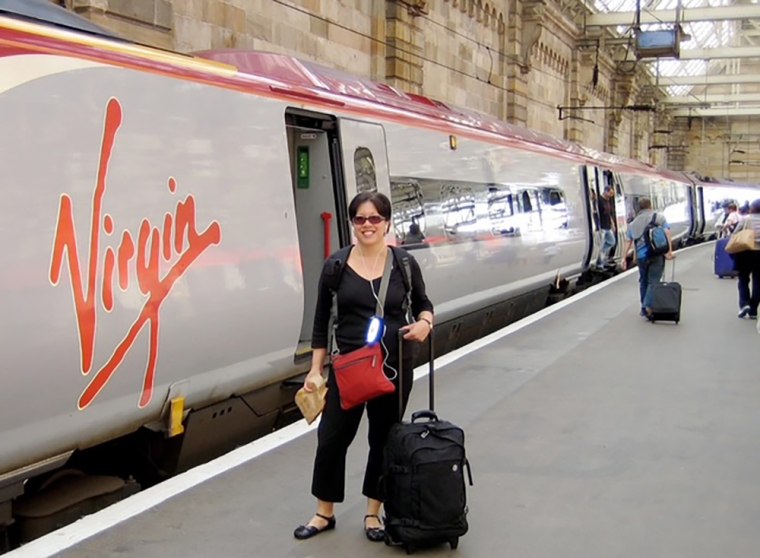Women are increasingly planning leisure trips just for themselves.
Nearly 40% of female travelers voiced interest in setting out solo in 2025, the tourism market research firm Future Partners found in a recent survey — up 8 percentage points from a year earlier. While men are more likely to travel alone for leisure, women’s appetite for independent adventures is rising, and travel operators are working to cater to them.
After launching “Women in the Wild” small-group nature journeys in 2023, Natural Habitat Adventures boosted its capacity by 75% over the last year and plans to double it for 2025. The Boulder, Colorado-based company, which partners with the World Wildlife Fund on conservation-driven tourism, said it has seen especially strong demand among older women.
“There’s an emerging space that’s normalizing and encouraging travel for older women, particularly for those whose partners may not be able to travel with them, or for women who have lost a partner,” said Renata Haas, head of adventure operations for North America.
The nonprofit travel company Road Scholar, which serves about 90,000 travelers annually and gears its tours to people over 50, said only about 20%-30% of its clients travel alone, but that subset is overwhelmingly women — at some 85%.
It’s become more acceptable for women to leave their families, partners or spouses behind and travel with a group of like-minded women.
WanderTours CEO Beth Whitman
When the company surveyed its single-booking customers, 60% were married but traveling without their spouses; 40% of its female solo guests cited different travel interests than their partners, and roughly the same share said their spouses weren’t keen on traveling at all.
Luxury travel network Virtuoso has also found the vast majority of its solo clients are women, at 71%. About 47% of them are divorced, separated or widowed — part of “a surge in post-partner or family-raising travel,” the company said.
Even rustic, DIY-driven travel companies have seen demand rise among female customers. Macs Adventure, which offers self-guided hiking and biking trips with 24/7 support teams, said 56% of its solo bookers in 2024 were women, up 2 percentage points since the year before.
The shift comes as airlines adjust to record travel volumes, increasingly fueled by consumers with big budgets to burn on pricey flights and a growing array of premium packages. Many of these travelers are older middle- and upper-income adults who’ve watched their stock portfolios and home values climb in recent years and now feel more comfortable treating themselves.
Around 15 years ago, only a handful of companies offered women-only tours, said Beth Whitman, CEO of Seattle-based WanderTours, “but it’s become more acceptable for women to leave their families, partners or spouses behind and travel with a group of like-minded women.” Her company tends to attract retirees with plenty of discretionary funds to drop on four- or five-star experiences, she added.
Doni Belau, founder of the women-only travel company Girls’ Guide to the World, said that until recently, industry marketers have overlooked the “significant financial resources” many women command — and their eagerness to put them toward solo excursions. About 85% of the women who join her trips are traveling alone and “willing and able to spend money to create great life experiences for themselves,” she said.
Women have long faced a distinct set of challenges traveling independently in many parts of the world, with potential pitfalls ranging from minor inconveniences to physical danger. Many businesses chasing more solo female travelers are looking to head off some of these concerns.

Carin Smith, a 61-year-old journalist from Cape Town, South Africa, recalled being declined a waterfront seat at a restaurant in Venice even though plenty were empty.
“I was told ‘off the record’ that they make more money from couples and families than from a female solo traveler,” she said. “No matter how much protested I couldn’t get a prime table because I was on my own.”
Heather Heverling, president and managing director for North America at the U.K.-based custom tour operator Audley Travel, said companies like hers try to plan around these hiccups.
“If a solo traveler wants to meet other people on their trip, our specialists will suggest a property that organizes shared dining,” she said. “They can also recommend properties that don’t charge a single supplement,” she said, referring to the dreaded premium some hospitality operators impose on solo guests for occupying accommodations meant for two.
M. Terry Bowman, an occupational therapy manager in Seattle who is 61, started traveling alone in her mid-30s. In the past, she’d sleep on someone’s floor or couch to save money, but she now budgets more for lodging and creature comforts. She also prioritizes destinations that “welcome and honor women. In an ever-changing world, I need to feel safe,” she said.

G Adventures, a touring company based in Toronto, recently launched “solo-ish” trips that combine independent and group experiences. About 64% of its clientele is female, and 35% are traveling alone.
The company’s target demographic is women who want to explore but may not have “a similarly minded travel partner, or timing didn’t align, and were hesitant to travel on their own,” said U.S. communications manager Kimberly Greiner.
Many women are wary of “certain places where maybe there was a language barrier or ‘unsafe for solo females’ reputation,” she said. To address some of these issues, the company employs female guides and carefully vets activities like homestays and meals with locals.
Cruise lines have been easing obstacles to solo travelers regardless of age or gender — while also chasing older and female passengers in particular.
A number of major operators “are building out some really nice options for those traveling by themselves,” said Colleen McDaniel, editor-in-chief of Cruise Critic. She cited Norwegian Cruise Line, which added about 1,000 solo staterooms to its 19-ship fleet in 2024, along with activities and a lounge just for solo guests.
Other cruise lines are also adding solo cabins and offering more ways to avoid or save on single supplement fees. AmaWaterways, for example, removed that charge on select European river cruises in 2024 and waives it on some ships in Europe. The Swiss travel network A Small World, meanwhile, launched the Solo Cruise Company in May 2024 targeting women 55 and up.
Uniworld River Cruises said it has seen a 31% increase in solo guests between 2019 and 2023 and a 61% jump in female solo travelers over the same period. It’s offering its first women-only river cruise in August 2025.
